House of Representatives' Clarification
In a recent turn of events, the Nigerian House of Representatives has decisively denied accusations that it requested President Bola Ahmed Tinubu's administration to suspend the implementation of the Samoa Agreement over alleged LGBTQ clauses. This rebuttal aims to quell growing concerns and misconceptions propagated by a wave of erroneous reports.
The initial storm brewed from claims suggesting that the House had advocated for halting the agreement's enforcement due to fears that it might pave the way for the legitimization of same-sex relationships within Nigeria. These allegations stirred a considerable debate, given Nigeria's firm stance on issues related to LGBTQ rights, underscored by the 2014 Same-Sex Marriage (Prohibition) Act which strictly outlaws such relationships.
Amidst the uproar, federal government representatives clarified that the Samoa Agreement, indeed a significant pact between the European Union and the Organization of African, Caribbean, and Pacific States (OACPS), does not possess the jurisdiction to override Nigeria's sovereign laws. Spanning over 103 articles, the agreement signed in Apia, Samoa, in 2018 focuses on diverse cooperative domains including sustainable development, climate action, and international collaboration among member states.
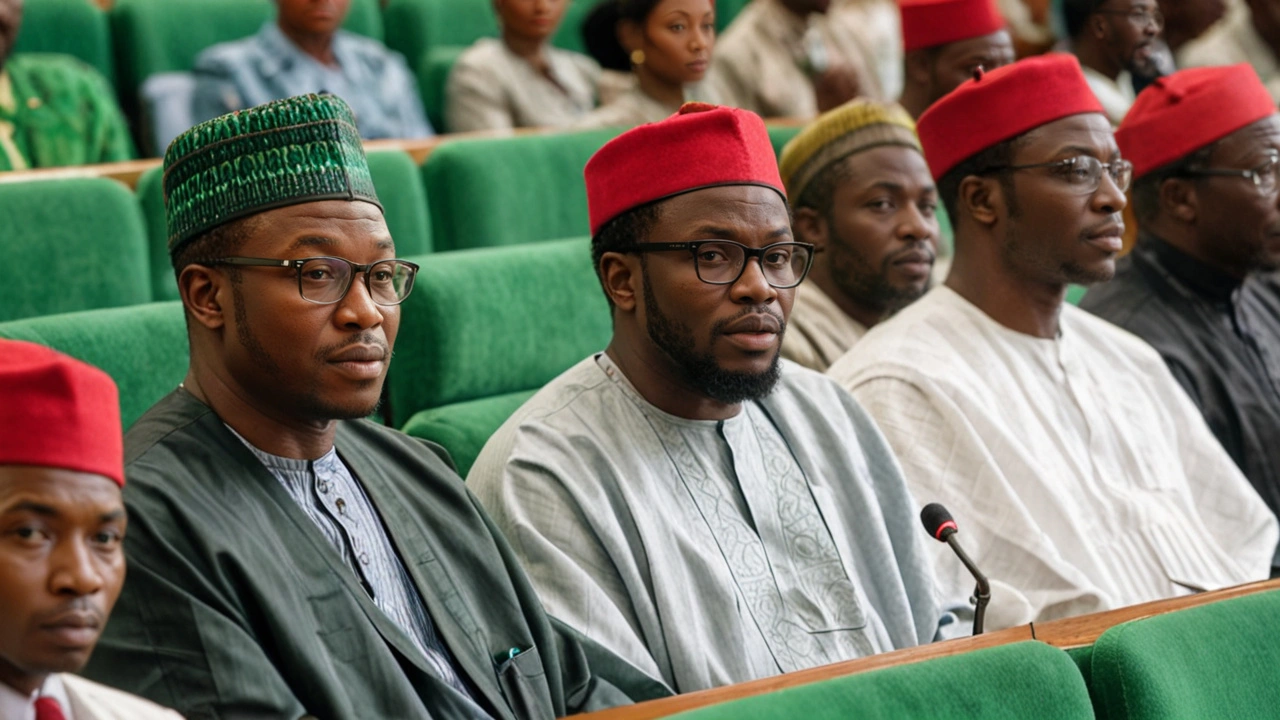
The Samoa Agreement: An Overview
The Samoa Agreement is a paramount framework that seeks to foster progressive collaboration and sustainable development among a multitude of nations. Crafted with an ambitious vision, it not only addresses climate change - one of the most pressing global challenges - but also underlines the importance of socio-economic development and mutual cooperation. Consisting of 103 articles, the agreement delineates a spectrum of cooperation areas, striving to create a synergy among the member states, comprising nations from Africa, the Caribbean, and the Pacific.
Nigeria's commitment to this agreement was not taken lightly. It was a culmination of exhaustive reviews and widespread consultations spearheaded by an interministerial committee. These evaluations ensured that every iota of the agreement was in stringent concordance with Nigeria's legal and constitutional framework.
Implementation Amid Controversy
The controversy surrounding LGBTQ clauses predominantly stems from Nigeria's stringent anti-same-sex relationship laws. The 2014 legislation explicitly criminalizes same-sex marriages, striking a stark contrast with progressive Western views. When whispers began suggesting that the Samoa Agreement could inadvertently facilitate a relaxation of these laws, alarm bells rang across conservative circles. The resultant furrowed brows led to a loud clamor for re-evaluation - a sentiment that the House of Representatives was quick to address.
In their recent statement, House members reiterated their support for upholding Nigeria’s moral and legal fabric. They were unequivocal in their stance that they have not, and will not, seek to undermine laws reflecting the cultural ethos of the country. They emphasized that their role is to protect the sanctity of Nigeria's legal and cultural identity, ensuring that international agreements do not subtly twist this prerogative.
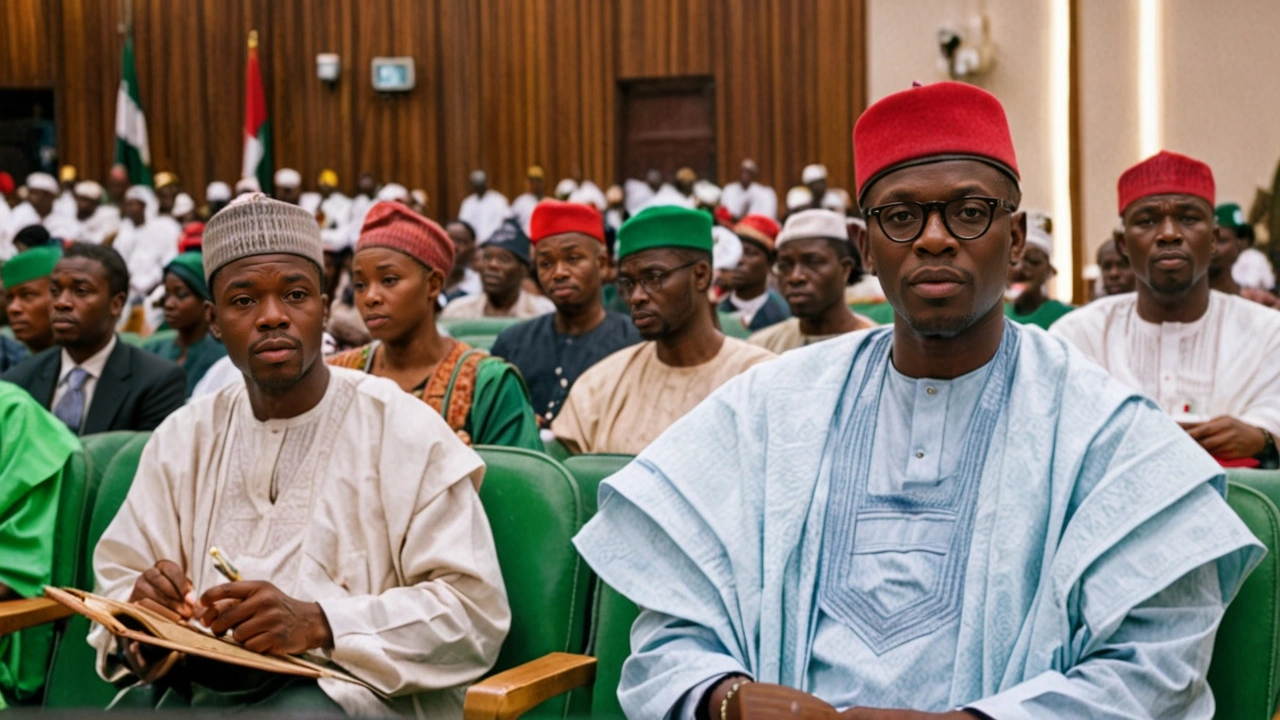
Government’s Position
Adding further clarity, officials from President Tinubu's administration articulated that the Samoa Agreement, while a beacon of international cooperation, is in no way an instrument to subvert Nigeria's laws. Prior to signing, the agreement underwent meticulous scrutiny, ensuring that no clause within its lengthy framework could be interpreted as contravening Nigerian statutes.
The federal government reaffirmed its allegiance to the principles enshrined in the 2014 legislation against same-sex relationships. They maintained that Nigeria’s engagement in international treaties and agreements is to bolster diplomatic ties and foster development, not to dilute its legal or cultural identity.
The administration also pointed out the broader benefits of the Samoa Agreement. By aligning with global partners, Nigeria stands to gain substantially in terms of climate action initiatives and sustainable development programs. The exchange of technological and knowledge assets among member states is projected to bolster Nigeria’s developmental agenda, making a compelling case for active participation in such international frameworks.
Implications for Nigeria
The Samoa Agreement holds significant promise for Nigeria, emphasizing mutual respect for the laws and cultural nuances of member states. For Nigeria, this partnership opens the door to a treasure trove of opportunities aimed at addressing key developmental challenges. Amid rising climate concerns, the agreement's focus on sustainable practices and environmental stewardship resonates with Nigeria's aspirations for a greener future.
The agreement’s multifaceted nature delves into economic cooperation, technical assistance, and educational exchanges. For a nation like Nigeria, grappling with a slew of socio-economic issues, such global partnerships could prove instrumental. From fortifying agricultural resilience against climate adversities to enhancing healthcare frameworks through international collaborations, the ripple effects of the Samoa Agreement could reverberate positively across Nigeria's socio-economic landscape.
As Nigeria navigates its commitments under this agreement, it remains steadfast in upholding its constitutional values. The House of Representatives’ recent clarification underscores a collective resolve to engage with the world while preserving the sanctity of its legal and cultural ethos. This balance between global engagement and national sovereignty will define Nigeria’s path forward, ensuring that international cooperation complements rather than compromises its identity.
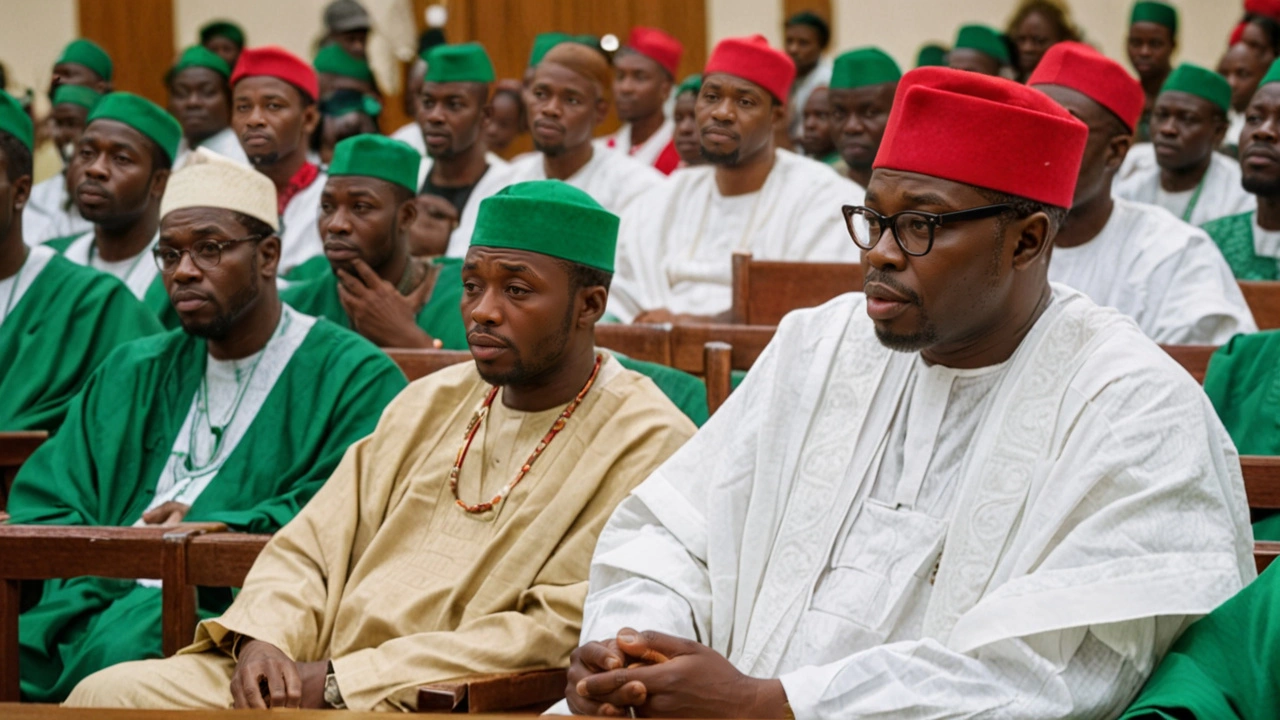
Conclusion
In sum, the House of Representatives’ clear stance dispels any misconceptions regarding the Samoa Agreement. It reaffirms Nigeria’s unwavering commitment to its laws, especially those pertaining to LGBTQ issues. As the nation continues to engage with international partners, the emphasis remains on leveraging such agreements for developmental gains while safeguarding its moral and legal framework. The Samoa Agreement, thus, stands as a testament to Nigeria’s ability to navigate the complex waters of international diplomacy, ensuring that global cooperation enhances rather than erodes its identity.

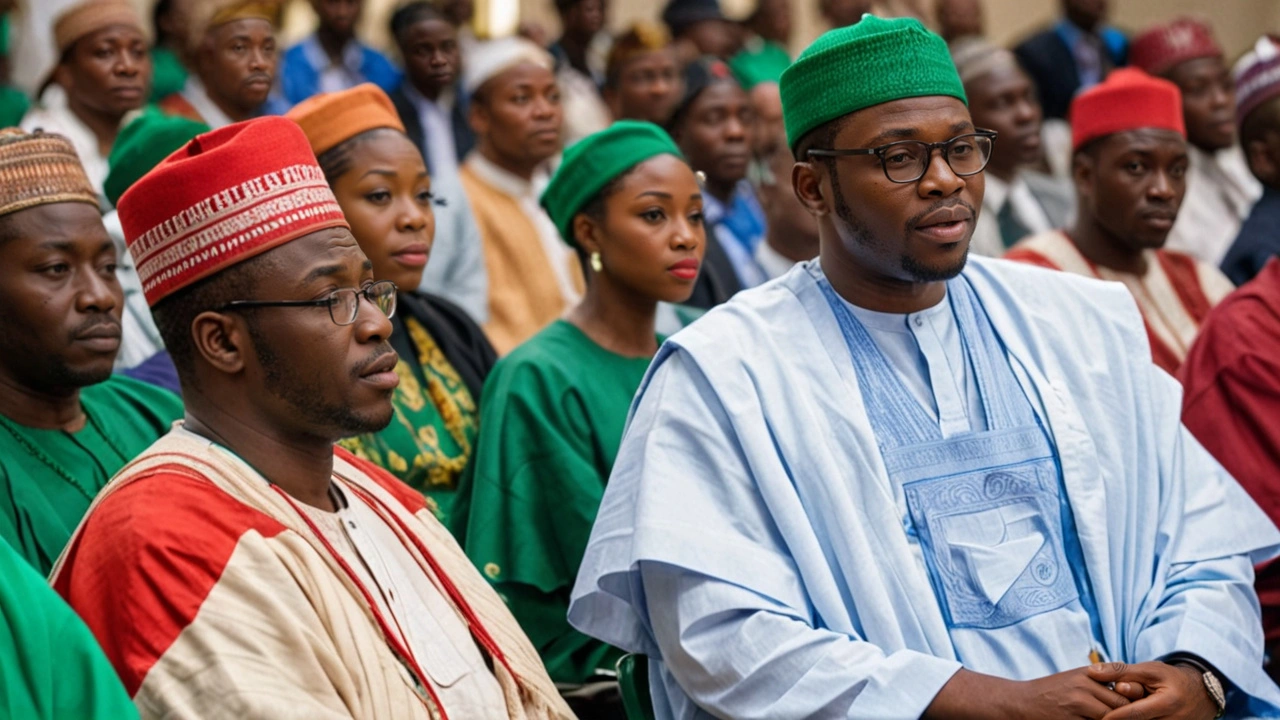

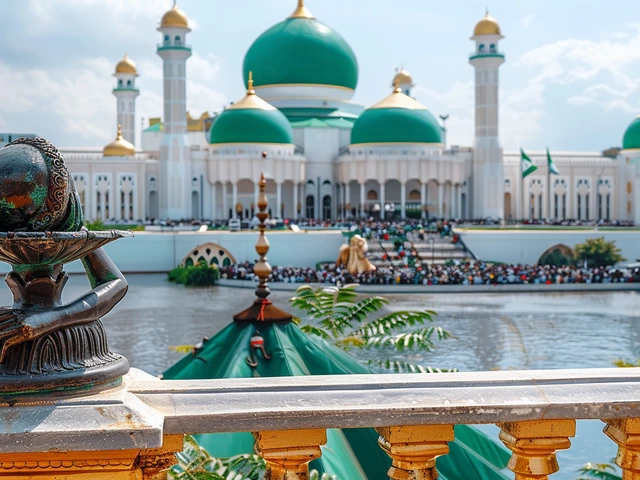
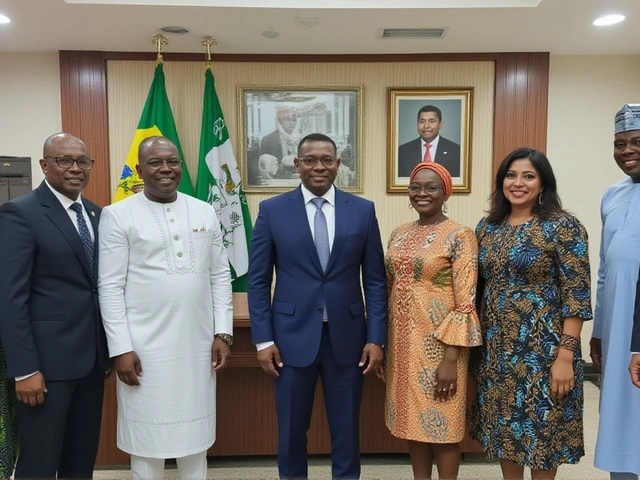
Comments
Just read the House’s statement – they’re saying they never asked for the Samoa Agreement to be paused because of any LGBTQ clause. It seems the confusion came from mis‑reporting, not from any real policy move.
Wow the drama around this was crazy 🤯 the House never actually pushed to stop the deal
Behold the tempest of whispers that dared to brand a legislature with motives unseen, yet the truth emerges stark and silent.
Let’s cut to the chase: the claim that the House tried to halt the Samoa Agreement is a textbook example of sensationalist media. There’s zero evidence in parliamentary records, and the government’s legal team has already debunked it. Anyone still spreading this can’t be taken seriously.
It’s good to see a clear explanation from the lawmakers. The Samoa Agreement’s focus on climate and development is far more relevant to Nigeria’s needs than any speculation about social policy. By staying transparent, the House helps keep public trust intact while still pursuing the benefits of international cooperation.
India stands firm with Nigeria’s right to protect its cultural values! 😊
The clarification helps avoid needless panic and keeps focus on real issues.
Exactly! 👍 The agreement brings tech aid, climate funds, and agricultural support – all crucial for our growth. Let’s not get sidetracked by baseless rumors; the real win is in the development projects that will reach our farms and schools! 🚀
Wow, the whole saga felt like a blockbuster drama! 🎬 The House’s swift denial cuts through the noise like a laser, letting us refocus on climate action and economic perks that the Samoa pact promises. 🌍
In examining the recent clarification issued by the House of Representatives, it becomes evident that the allegations concerning a request to suspend the Samoa Agreement were unfounded. The initial reports appeared to conflate separate policy discussions with a purported legislative directive, thereby creating a narrative that lacked substantiation. A thorough review of parliamentary proceedings reveals no motion or formal request aligning with the claims presented in the media. Moreover, the government’s legal advisory unit has expressly confirmed that the agreement does not possess any mechanism to override national statutes, including those governing societal norms. This assurance underscores the primacy of Nigeria’s constitutional framework in all treaty implementations. The Samoa Agreement, signed in 2018, comprises 103 articles that predominantly address climate resilience, sustainable development, and capacity building among member states. By participating in this multilateral framework, Nigeria stands to benefit from technology transfer, climate financing, and collaborative research initiatives. These benefits are particularly salient given the country’s vulnerability to climate‑induced agricultural disruptions and energy challenges. It is also noteworthy that the agreement explicitly respects the sovereign legal systems of each participant, thereby precluding any imposition of external social policies. Consequently, fears that the pact could serve as a conduit for the liberalization of LGBTQ legislation are demonstrably misplaced. The House’s statement, therefore, not only dispels misinformation but also reaffirms its commitment to safeguarding national values while engaging constructively on the global stage. In addition, the clarification helps restore public confidence, which is essential for the successful rollout of development programs linked to the agreement. Stakeholders, including civil society and the private sector, can now proceed with planning and implementation without the shadow of alleged legal conflicts. Finally, the episode illustrates the broader challenge of navigating media sensationalism in an era of rapid information dissemination. Vigilance, fact‑checking, and transparent communication remain critical tools for both policymakers and the public in such contexts.
I appreciate the comprehensive breakdown; it clarifies many points and reinforces the importance of factual reporting.
Great to see the facts laid out – it shows how much progress we can make when we focus on climate and development instead of chasing rumors.
Yea, totally! This whole mess was just a big mis‑info storm – now we can look forward to some real green projects. :)
This is another classic case of media hype blowing up a non‑issue, as usual.
Epistemic clarity necessitates decoupling treaty semantics from sociocultural conjecture.
meh, same old drama 🙄
Let’s keep the momentum on climate projects 👍
Reflecting on the broader implications of Nigeria’s participation in the Samoa Agreement, one discerns a nuanced interplay between sovereign legal prerogatives and the exigencies of global cooperation. While the domestic discourse has been saturated with concerns about cultural integrity, the substantive provisions of the agreement offer tangible avenues for capacity building and sustainable development. It is incumbent upon policymakers, scholars, and community leaders to foster a dialogue that honors both the nation’s ethical foundations and its aspirations for environmental stewardship. In doing so, Nigeria can exemplify a model wherein adherence to national values coexists harmoniously with constructive engagement in international frameworks.